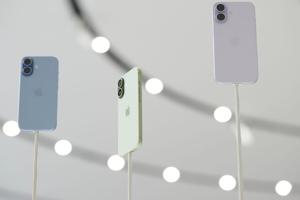
iPhone users can now better manage unwanted calls thanks to a new call screening feature included in the recent release of iOS 26. This tool aims to address the growing problem of nuisance phone calls, which have increasingly frustrated users around the world.
The feature is available for iPhone models starting from the iPhone 11 and can be activated by updating to the latest operating system. To enable call screening, users need to navigate to Settings, then select Apps and Phone. A new option, Screen Unknown Callers, will appear, offering three settings: “Never,” “Silence,” and “Ask Reason for Calling.” The second option allows users to send unidentified calls directly to voicemail, while the last prompts the caller to state their name and the reason for their call.
In a user-friendly process, when an unknown number calls, a voice reminiscent of Siri will engage the caller. Users receive a notification indicating that the call is being screened, and the caller’s response is transcribed into speech bubbles for easy reading. This new layer of interaction helps users decide whether to pick up the call or respond with a pre-set message, such as “I’ll call you later.”
While the feature presents a significant advancement in managing unwanted calls, it is not without its challenges. Some users have reported issues where critical calls, such as those from delivery services or service providers, are misinterpreted or lost due to the screening process. One user noted, “It’s not great when delivery drivers try to call me and then just hang up,” illustrating the potential drawbacks of automated systems.
Similar sentiments have been echoed across social media, where users have expressed frustration about legitimate calls being mistaken for spam. One individual shared an experience where an unknown caller used their name, leading to confusion and an unsolicited survey attempt.
For those who prefer not to use call screening, the option can be disabled at any time. This update brings Apple in line with Google, which has offered a similar automatic call screening feature for its Pixel users since previous years. Recently, Google expanded its service to users in Australia, Canada, and Ireland. Unlike Apple’s system, Google’s version is more automated and can hang up on calls it identifies as spam.
Samsung also provides a comparable feature for its Galaxy Android phones, utilizing its AI assistant, Bixby, to screen calls. This competition among major tech companies reflects an increasing demand for tools that help users manage unwanted communications effectively.
As phone users continue to face the challenges posed by spam and robocalls, Apple’s introduction of call screening may offer a viable solution for many. This feature not only empowers users to take control of their incoming calls but also represents a proactive approach to improving the overall calling experience.





